Born on a rooftop in Yemen to the sound of gunfire during the civil war, Saleh Saeed is no stranger to the impact conflict and disaster have on civilians.
He moved to the UK with his parents at the age of four as part of a wave of immigration from Yemen and settled in the West Midlands, where he later became involved in humanitarian work and has now been chief executive officer of the Disaster Emergencies Committee (DEC) for the past 11 years.
“My mum gave birth to me while there was fighting and gunfire in Yemen and she went to the safest place she could find, which was the hidden rooftop of the house, ” he explained.
“There were no medical facilities and it was just her and a friend who helped her. She has since relayed to me how frightening it was.
“I was exposed at a very early age to poverty and conflict in that part of the world and even after settling in the UK, I made frequent visits to Yemen.”
Growing up and living in West Bromwich in the 70s, 80s and 90s, Mr Saeed saw the effects of inner-city deprivation and unemployment and initially began volunteering with Islamic Relief in Birmingham and ultimately became CEO of Islamic Relief Worldwide.
He joined DEC in September 2012 and told i he feels “humbled and privileged” to have been leading DEC for the last 11 years and sees the 60th anniversary as a “celebration of 60 years of very generous British public support to overseas crises and disasters.”
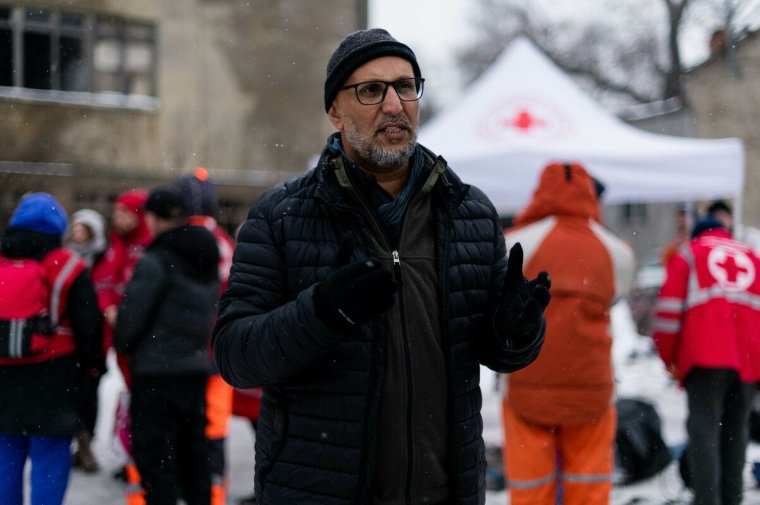
In the past 60 years, the UK public has given an astounding £2.4bn to 77 national appeals, responding with empathy and generosity to the plight of others.
They have helped provide a lifeline to millions affected by some of the largest humanitarian crises, including the Ethiopian Famine, the Boxing Day Tsunami, the Ukraine Humanitarian Appeal and most recently, the Turkey-Syria earthquake.
Today, the King and Queen will host a reception at Buckingham Palace to acknowledge those who have supported the UK’s contribution to humanitarianism as well as recognising sixty years of the DEC.
They will be introduced to the DEC’s chief executive Saleh Saeed and ambassadors who have supported various appeals launched by the charity, including Dame Joanna Lumley, Sir Michael Palin and Adrian Lester.
The DEC began life after a cyclone hit Sri Lanka in 1963 and the High Commissioner in London broadcast an appeal to the British public for help.
Lord Astor, chairman of the Standing Conference of British Organisations for Aid to Refugees, proposed that relief agencies and interested parties should cooperate closely together to provide relief after a disaster overseas.
The British Red Cross agreed to co-ordinate and the new DEC was recognised by the BBC as a representative body.
Today, the DEC has grown from its five original members – the British Red Cross, Save the Children, Inter-Church (now known as Christian Aid), the Oxford Committee for Famine Relief (now known as Oxfam) and War on Want – to bring together 15 of the world’s leading aid agencies.
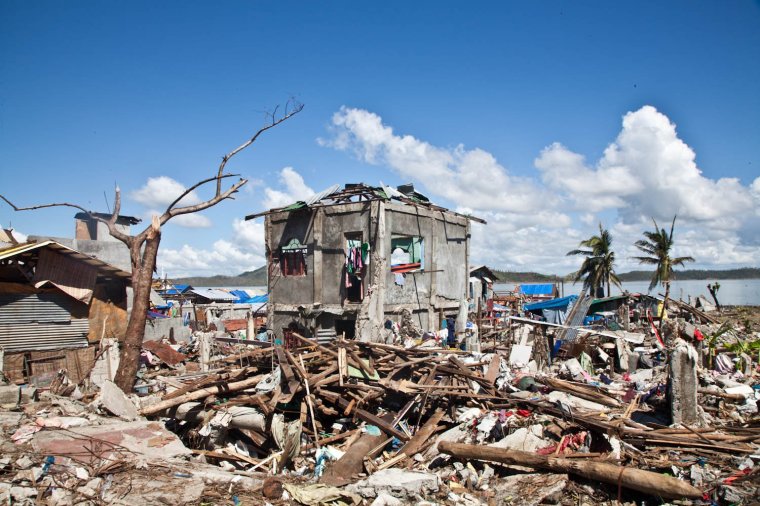
It now has a Rapid Response Network of key media and broadcast partners who help launch their emergency appeals at very short notice to get the message out and allow the UK public to donate quickly.
i is delighted to be the first newspaper and print media outlet to become a Rapid Response partner with the DEC.
i raised £857,000 thanks to the generosity of its readers for DEC’s Ukraine humanitarian appeal.
“We are really proud that i is our first newspaper partner to become a member of the Rapid Response Network. It has been phenomenal in raising awareness and the alarm and alert so readers can understand the nature of the disaster or crisis and the ways they can help,” said Mr Saeed.
After being founded, the DEC’s first appeal followed an earthquake in Turkey in 1964 and it has come full circle as is now responding to the latest earthquake crisis in Turkey-Syria.
But the changing face of aid means DEC has radically adapted and developed the way it raises funds, communicates and delivers aid over the past 60 years.
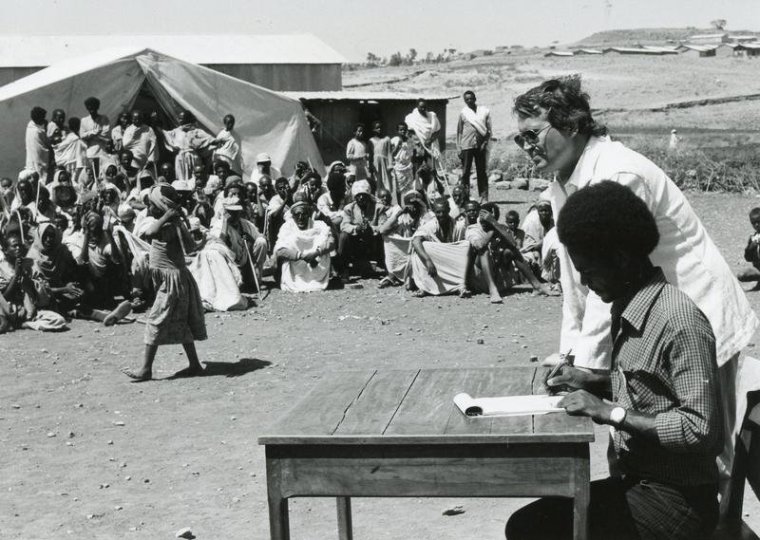
“When the DEC was first formed, we are talking about the 60s when there was no social media, no internet, no information highway,” said Mr Saeed. “Everything was done on telephones and by telegram. Something would happen halfway around the world and people might not get to hear about it for days or weeks later, as opposed to now when it is instant.
“People’s viewing habits on receiving news have changed so the DEC has to be on different platforms so people can get to know about the disaster. Thankfully, where most sympathies lie, when people see what is happening, they want to help and the DEC is fortunately able to help with that most times.”
Mr Saeed told i that conflict appeals are the most difficult in terms of messaging and communication because people justifiably want to know more about the reasons behind the conflict and decide whether they should help given it is a man-made crisis.
When it comes to delivering aid to those who need it, there is an increasing importance on giving of cash vouchers and supermarket vouchers. Not only does this mean greater efficiency, it also helps protect local markets.
“Gone are the days almost where we would fly in or ship aid from the UK or from the rest of the world,” said Mr Saeed. “It still goes on, but not as much.
“Instead, if the markets are in operation, such as in places like Turkey where the earthquake happened or indeed Afghanistan with all its challenges or Ukraine, then if we can help people with cash or supermarket vouchers, we will.
“It means people who have been made refugees or been displaced and have lost everything can get the things they need with dignity and there is no wastage. It also means we are not disrupting local markets and creating unfair competition or contributing to inflation.
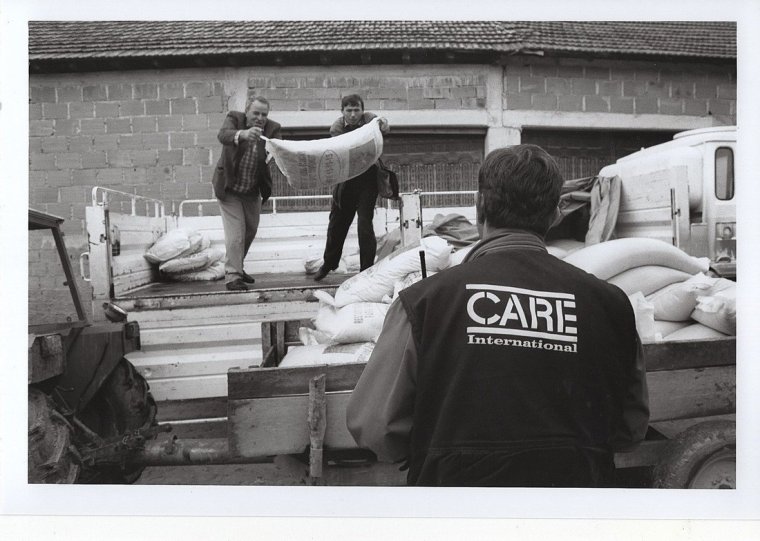
“This is a big shift for DEC as when it had its first earthquake appeal back in 1966, it would probably have relied on bringing in aid from overseas on planes or by road. Or it would have involved buying things from other parts of Turkey and packing it, trucking it in and distributing it.
“This would have been slow and very expensive. It still does go on in places where the markets have been completely destroyed, but where we can, we will give people a supermarket or cash voucher.
“It is highly efficient and more effective and means that more of the money people donate goes to those who need it and less is spent on the logistics of it.”
Another change in how DEC operates is supporting a locally led response rather than the idea of people from a foreign country coming in and taking over. “The first responders in any emergency are local people,” said Mr Saeed. “They are the ones who after an earthquake or in the case of a conflict where a city is bombed are the people pulling people out of the rubble or providing water and support to their fellow civilians.
“It is about empowering and supporting local organisations, local communities and local people so they are in charge of that locally led response and equipping them with the skills and tools they need to deliver that.”
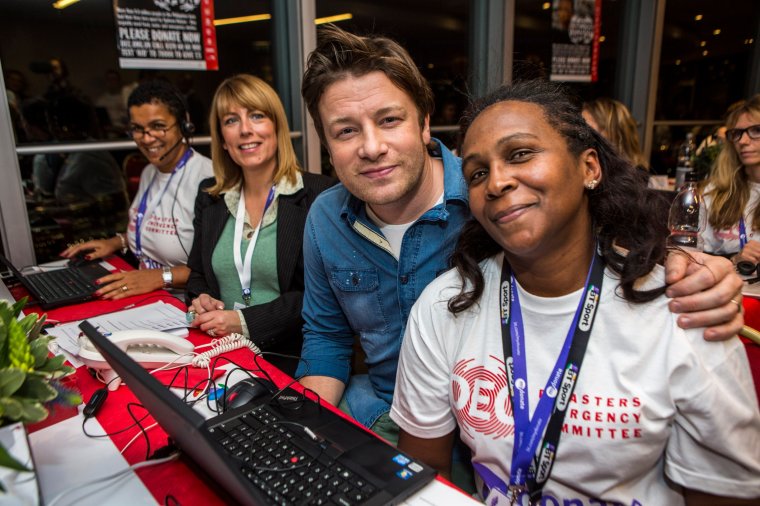
Victoriia Panchenko, programme lead from HelpAge Ukraine, a local partner of DEC charity Age Internationals, told i that DEC funding has allowed them to give humanitarian assistance to more than 40,000 people in Ukraine, mostly older men and women.
“At least 25 per cent of the Ukrainian population were over the age of 60 before the Russian invasion happened,” she said. “Most of them lost their houses and relatives and need special support.
“The funds received from DEC are very important for humanitarian support in Ukraine because so many people were affected in the most negative scenarios and people continue to suffer.”
The DEC launched the Ukraine Humanitarian Appeal in February 2022 when the conflict escalated and raised more than £420 million.
One of the many people who were helped include Lidya, 82, who has been supported by a project Ms Panchenko has been working on. Lidya survived an explosion which forced her and her daughter to flee and she consequently spent more than six months in hospital fighting infections.
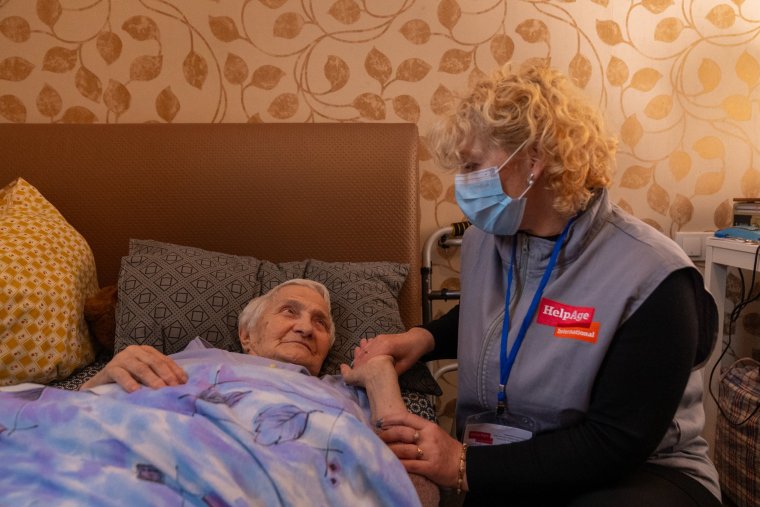
Lidya now lives in a hostel-turned shelter in Lviv, 16 hours from home and is regularly visited by one of HelpAge International’s social care volunteers who orders medications, personal hygiene items and supports her with applications for humanitarian assistance.
Mr Saeed says people often think of aid as being food, water and shelter – and it very often is that. But he says it is increasingly about health as well and mental health in particular. “Increasingly, we are having to provide psycho-social support to those who have been through trauma, particularly children,” he said.
“Sometimes, people have experienced the most terrible things, whether it’s an earthquake or living through a war. Helping those children and families recover and cope with that is as important as providing physical aid such as food, water and bandages.”
On the 60th anniversary milestone of the DEC, Mr Saeed said: “This is all about the public who support the work of the DEC and the very generous people from across the UK from all societies and faiths.
“This is an acknowledgement and celebration of their compassion and generosity and their concern and care for people across the globe, whether they’re people who have lost their homes in an earthquake, lost their livelihoods because of floods or have had their lives totally devastated because of conflict.
“It is wonderful that over the last 60 years, people in the UK have stood in solidarity and given very generously to help so many people.”
What has been achieved in 60 years by the DEC?
£2.4bn raised
77 appeals
Supported more than 60 countries
Some of the appeals:
The DEC’s first appeal was in 1966 for an earthquake in Turkey and raised £560,000
The most recent appeal was also for earthquakes in Turkey and Syria and was launched in February this year. It has raised more than £150m.
Other appeals and amounts raised:
1984 – Ethiopia in Famine Fund. Amount raised: £5.2m
1999 – Kosovo Crisis. Amount raised: £53m
2004 – Boxing Day Tsunami Appeal. Amount raised: £392m
2013 – Philippines Tycoon. Amount raised: £96m

